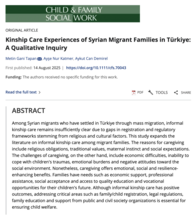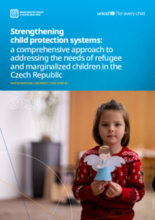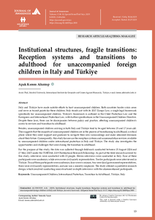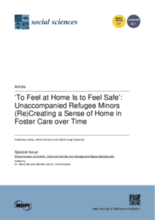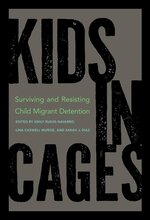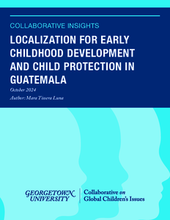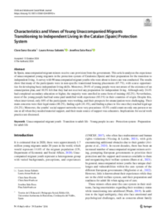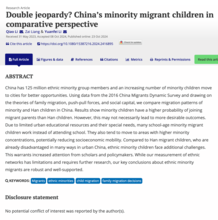Displaying 11 - 20 of 839
Among Syrian migrants who have settled in Türkiye through mass migration, informal kinship care remains insufficiently clear due to gaps in registration and regulatory frameworks stemming from religious and cultural factors. This study expands the literature on informal kinship care among migrant families.
This assessment examined how the child protection system supports children and families in vulnerable situations, with a particular focus on supporting the significant number of refugee children from Ukraine who have come to the Czech Republic since the start of the war in Ukraine in February 2022.
Understanding the circumstances in which children migrate is important to ensure their well-being. Yet, child migration in sub-Saharan Africa is not easy to measure.
Italy and Türkiye, both key transit countries for unaccompanied children, have legal frameworks to support them, yet gaps between policy and practice hinder access to services and a smooth transition to adulthood. This study, based on qualitative fieldwork and 23 interviews conducted in both countries, examines reception systems, accommodation services, and the challenges unaccompanied children face during this critical life stage.
This Norwegian study examines how unaccompanied refugee minors in foster care (re)create a sense of home over time, identifying security, familiarity, and autonomy as key intertwined aspects. It underscores the dynamic role of past experiences, present circumstances, and future aspirations, emphasizing the need for foster parents and child welfare workers to support cultural, relational, and personal continuity.
This interdisciplinary work brings together voices from the legal realm, the academic world, and the on-the-ground experiences of activists and practitioners. At the heart of these narratives lies a crucial debate: the tension between harm-reduction strategies and abolition.
This Collaborative Insights report gathers perspectives on strengthening ECD efforts from Guatemalan grassroots practitioners, national social movements, community-based organizations, international non-governmental organizations, donors, and the Guatemalan government.
Global migration is on the rise, and as a result, millions of children are left in their home countries while their parents migrate abroad. Little is known about the mental health of left-behind children (LBC) in Eastern Europe. The study addresses this research gap in Georgia, a leading migrant-sending country in the region.
This article analyzes the experience of unaccompanied young migrants in the protection system of Catalonia (Spain) and their preparation for the transition to independent living. A survey with 90 unaccompanied migrant youths who were about to leave care was conducted.
Using data from the 2016 China Migrants Dynamic Survey and drawing on the theories of family migration, push-pull forces, and social capital, the authors compare migration patterns of minority and Han children in China. Results show minority children have a higher probability of joining migrant parents than Han children. However, this may not necessarily lead to more desirable outcomes.

